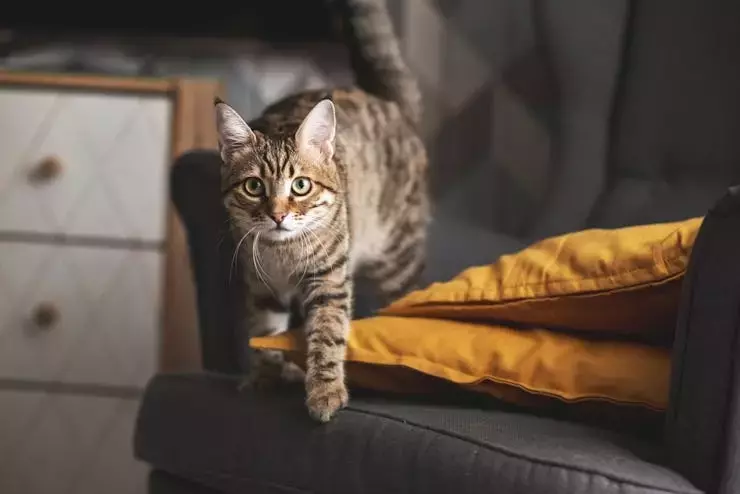
Many cat owners witness a fascinating transformation in their pets as night falls. The placid, sun-bathing feline of the day can morph into a whirlwind of energy, displaying what some affectionately call 'night zoomies' or 'psycho' behavior. This nocturnal hyperactivity, characterized by running, leaping, and vocalizations, is often puzzling and disruptive for human companions. However, veterinary experts explain that this behavior is deeply rooted in the natural instincts of our domesticated friends, stemming from their crepuscular nature and innate hunting drives. Understanding these behaviors is the first step toward creating a harmonious living environment for both cats and their owners, and effective management strategies can help ensure peaceful nights for all.
Addressing feline nighttime activity requires a multi-faceted approach, focusing on channeling their natural instincts constructively. By implementing routines that align with their biological rhythms, owners can significantly reduce unwanted nocturnal disturbances. This involves strategic playtime, appropriate feeding schedules, and providing ample mental and physical stimulation throughout the day. While these behaviors are largely normal, any sudden and drastic changes in a cat's nighttime conduct warrant professional veterinary consultation, as they could indicate underlying health concerns. Ultimately, a balanced and enriched daily life for your cat can lead to a more restful night for everyone in the household.
Decoding Feline Nocturnal Activity
Cats' nighttime antics, often described as 'zoomies,' are a natural expression of their intrinsic biological rhythms. Unlike humans, cats are crepuscular, meaning they are most active during dawn and dusk. This evolutionary trait is linked to their predatory heritage, as these times historically offered prime opportunities for hunting prey. Consequently, the bursts of energy, sudden dashes, and playful pounces observed in domestic cats during late evenings and early mornings are simply their natural hunting instincts manifesting in a household setting. The seemingly erratic behavior is a reflection of deeply ingrained evolutionary patterns, rather than a sign of distress or behavioral issues.
Veterinarians emphasize that a significant contributor to these nighttime energy surges is the substantial amount of rest cats accumulate during daylight hours. A cat that spends much of its day napping will naturally have a surplus of energy by nightfall, leading to the vigorous activity that can disrupt a human's sleep. This is a perfectly normal aspect of feline physiology. Therefore, understanding this inherent activity cycle is crucial for cat owners. It’s not about curbing their natural instincts, but rather about redirecting and managing this energy in a way that is compatible with human living schedules. Recognizing that these behaviors are a part of a healthy cat's life is the first step in effectively addressing them.
Strategies for Peaceful Nights
Managing a cat's nighttime hyperactivity effectively centers on strategic engagement during the day and establishing consistent routines. The goal is to channel their natural predatory drive and accumulated energy into productive activities before bedtime. Engaging your cat in energetic play sessions, particularly in the evening, is highly recommended. Using interactive toys like feather wands or laser pointers can simulate hunting scenarios, allowing your cat to expend physical and mental energy. Following these play sessions with a small, high-protein meal mimics the natural "hunt-eat-sleep" cycle of a predator, promoting a sense of satiety and readiness for rest.
Beyond evening routines, it is vital to provide consistent mental and physical stimulation throughout the day. This can include offering puzzle feeders that require your cat to work for their food, installing window perches for bird-watching opportunities, or even playing animal-themed videos to keep them engaged. Such daytime activities prevent excessive napping and the subsequent buildup of energy that leads to nocturnal disruptions. While ignoring harmless zoomies might be acceptable, it's crucial not to inadvertently reinforce unwanted behaviors, such as responding to vocalizations with food or play in the middle of the night. Creating a cat-proofed sleep environment, free from easily toppled objects, also contributes to safety and peace of mind. Should a cat's behavior suddenly change, a veterinary check-up is advisable to rule out any underlying medical conditions like hyperthyroidism or cognitive decline, which can manifest as increased nighttime restlessness.
